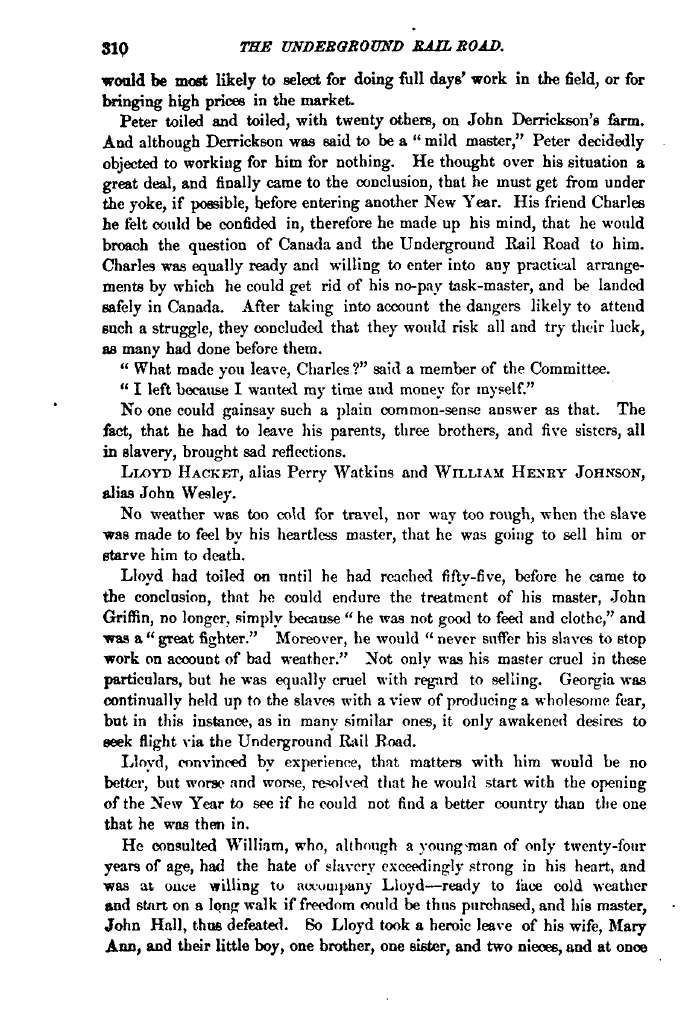 |
||||
 |
||||
| 81Q THE UNDERGROUND RAILROAD. would be most likely to select for doing full days' work in the field, or for bringing high prices in the market. Peter toiled and toiled, with twenty others, on John Derrickson's farm. And although Derrickson was eaid to be a " mild master," Peter decidedly objected to workiog for him for nothing. He thought over his situation a great deal, and finally came to the conclusion, that he must get from under the yoke, if possible, before entering another New Year. His friend Charles he felt could be confided in, therefore he made up his mind, that he would broach the question of Canada and the Underground Rail Road to him. Charles was equally ready and willing to enter into any practical arrangements by which he could get rid of his no-pay task-master, and be landed safely in Canada. After taking into account the dangers likely to attend such a struggle, they concluded that they would risk all and try their luck, as many had done before them. " What made you leave, Charles ?" said a member of the Committee. " I left bocatise I wanted my time and money for myself." No one could gainsay such a plain common-sense answer as that. The fact, that he had to leave his parents, three brothers, and five sisters, all in slavery, brought sad reflections. LixrrD RACKET, alias Perry Watkins and WILLIAM HEXEY JOHNSON, alias John Wealey. No weather was too cokl for travel, nor way too rough, when the slave •was made to feel by his heartless master, that he was going to sell him or starve him to death. Lloyd had toiled on nntil he had reached fifty-five, before he came to the conclusion, that he could endure the treatment of his master, John Griffin, no longer, simply because " he was not good to feed and clothe," and was a " great fighter." Moreover, he would " never suffer his slaves to stop work on account of bad weather." Not only was his master cruel in these particulars, but he was equally cruel with regard to selling. Georgia was continually held up to the slaves with a view of producing a wholesome fear, but in this instance, as in many similar ones, it only awakened desires to seek flight via the Underground Rail Road. Lloyd, convinced by experience, that matters with him would be no better, but worse and worse, resolved that he would start with the opening of the New Year to see if he could not find a better country than tlie one that he was then in. He consulted William, who, although a young^nan of only twenty-four years of age, had the hate of shivery exceedingly strong in his heart, and •was at ouce willing to accompany Lloyd—ready to face cold veather and start on a lonpr walk if freedom could be thus purchased, and his master, John Hall, thos defeated. 60 Lloyd took a heroic leave of his wife, Mary Ann, and their little boy, one brother, one sister, and two nieces, and at once |